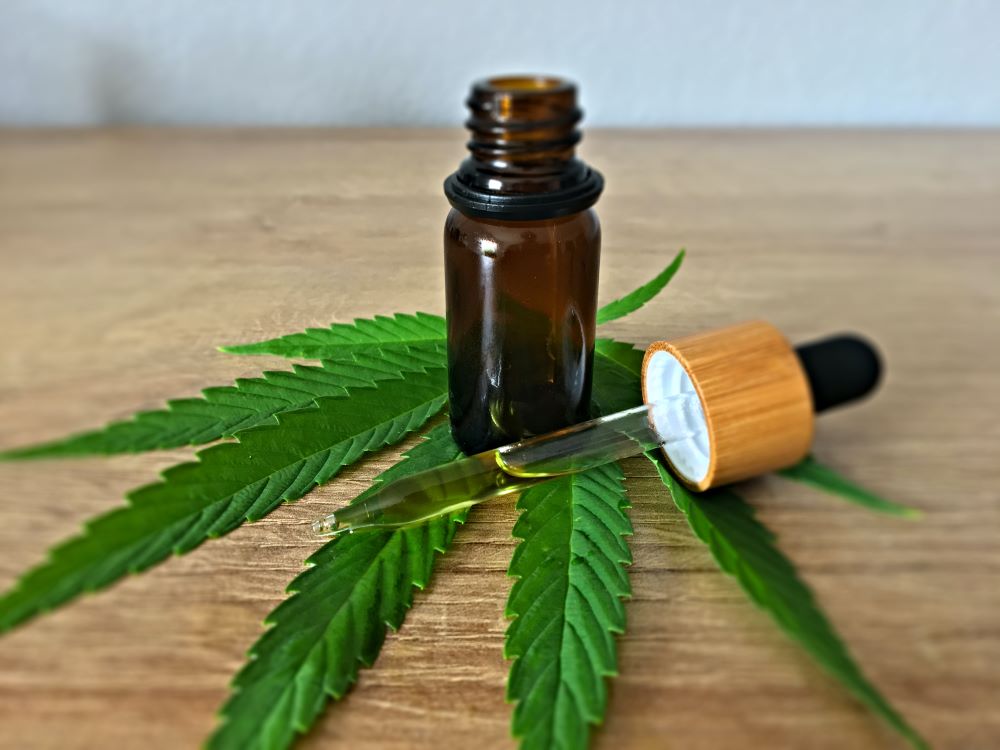Cannabis is an extremely divisive subject these days, but there is no denying its medicinal potential. We will not be discussing the legality or illegality of the plant or its compounds or products, nor do we encourage the illegal use of anything in this article. Instead, we’ll focus on aspects of its physiological effects that primarily support health.
What Cannabinoids Exist? Cannabinoids are a class of compounds present in the cannabis plant, which interacts with the human body’s endocannabinoid system and regulates many physiological processes. Although most people know of THC (tetrahydrocannabinol) and CBD (cannabidiol), there are actually over 100 different cannabinoids each with its own unique properties. In order to do so, lets take a look at what cannabinoids are most notable and what they do. 1. THC (Tetrahydrocannabinol) THC is the most prominent cannabinoid that we can talk about here. It binds directly to CB1 receptors in the brain, eliciting the “high” characteristic of cannabis use. It has medicinal benefits beyond this too, including pain relief, appetite stimulation and anti-nausea effects.

2. CBD (Cannabidiol) Another popular cannabinoid is CBD (cannabidiol), which is praised for its health benefits without producing a “high.” It indirectly connects with the receptors of CB1 and, of course, CB2, delivering anxiolytic, anti-inflammatory, and anticonvulsant effects. CBD has gained popularity among those looking for relief from chronic pain or anxiety without side effects. It can alleviate symptoms quite significantly for conditions like panic disorders.
3. CBG (Cannabigerol) Often called “the mother of cannabinoids,” CBG is a precursor to THC, CBD, and other cannabinoids. While present in smaller quantities, CBG has antibacterial properties and may support brain health. Studies show that it possesses anti-inflammatory properties and promotes healthy digestion.

4. CBC (Cannabichromene) CBC may not be so well-known but distinct for its soothing and analgesic properties. It doesn’t bind directly to CB1 receptors, so it doesn’t produce a high. Instead, it potentiates the effects of other cannabinoids via the “entourage effect.”
5. CBN (Cannabinol) CBN occurs when there is a breakdown of THC from heat and light exposure. It may possess mild psychoactive properties; however, it is most known for its ability to serve as a sedative and is a prime candidate for use for sleep disorders.
6. THCV (Tetrahydrocannabivarin) THCV resembles THC chemically, but has unique effects. In small doses, it can serve to suppress appetite, making it enticing for the sake of weight loss. Preliminary research indicates it may also help control blood sugar levels and promote bone health. It is becoming more widely available in vape products.
Delta-8 and Delta-10 THC Delta-8 and Delta-10 THC are new cannabinoids that are generating buzz. They provide mild psychoactive properties and are less potent than Delta-9 THC. Their stress-relieving and calming properties have become popular.
Endocannabinoids In addition to cannabinoids derived from plants, the body makes its own cannabinoids, termed endocannabinoids. Such examples are anandamide and 2-AG, which regulate mood, appetite, pain, and other essential functions. This enables the understanding toward the plant-derived use of cannabinoids.
The “Entourage Effect” Cannabinoids interact in groups. The entourage effect describes how cannabinoids, terpenoids and other compounds work together to boost each other’s therapeutic effects. For example, CBD can mute THC’s heady effects or magnify its pain relief. This synergy underscores the complex interplay among the plant’s compounds.
RSO Oil Rick Simpson Oil (RSO) is a potent cannabis oil that was made famous by the Canadian activist of the same name, who claimed it cured his skin cancer. RSO is specific in its elevated levels of THC, the main psychoactive element of cannabis. It is commonly used, with many thinking it might fight cancer, as laboratory studies show THC could keep some cancer cells from growing or in some cases even kill them. RSO-use reports focus on pain relief, appetite, and general well-being improvements, especially for those dealing with chemotherapy side effects. Still, today’s research is confined to animals and laboratory work, and doesn’t provide concrete evidence of safety and effectiveness for humans (though the promise is there). RSO has been especially successful at alleviating specific epileptic seizures as well. And when it comes to how these cannabinoids exert their anticonvulsant effects, clinical studies involving THC and CBD, especially for treatment-resistant epilepsy such as Dravet Syndrome, have targeted their use in reducing seizure frequency.

WIDER MEDICAL IMPLICATIONS Cannabinoids are being researched for their potential to treat a vast array of health problems outside of chronic pain, inflammation and epilepsy. They include emerging areas of research in: Neurodegenerative diseases: Cannabinoids could protect brain cells, and slow the progression of conditions such as Alzheimer’s, and in some cases improve cognitive function. Anxiety and PTSD: CBD is showing potential for managing anxiety and stress-related disorders through its influence on serotonin receptors in the brain. Cancer symptom management: In addition to RSO, other cannabinoid-based medications are being manufactured to relieve nausea, pain, and weight loss in patients undergoing chemotherapy. Autoimmune diseases: Studies indicate that cannabinoids might modulate the immune system and alleviate symptoms in diseases such as multiple sclerosis and rheumatoid arthritis.
Final Thought There are many therapeutic applications of cannabinoids because they are diverse. As research continues, we are learning how they can be beneficial for physical and therefore mental health. Be it anything from managing chronic pain to improving sleep quality and reducing inflammation, cannabinoids can be used for multiple health ailments. But it’s essential to find a doctor open to novel therapies who recognizes the potential of the plant with one of the most effective remedies derived from thousands of years of experience and modern medicine. In the right hands, cannabinoids are a powerful health and wellness tool.